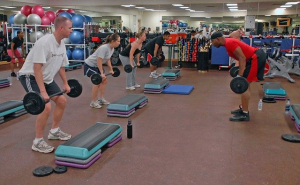
Coenzyme Q10 is NOT on the Prohibited List of the World Anti-Doping Agency.
The substance Coenzyme Q10 has many properties that make it a logical nutritional supplement for athletes in training and for normal healthy people who exercise to stay fit. Coenzyme Q10 supplements should help to improve exercise capacity and reduce the oxidative stress, muscle damage, and inflammation caused by strenuous exercise [Sarmiento].
- The oxidized form of Coenzyme Q10 – ubiquinone – is essential for cellular production of ATP energy [Littarru].
- The reduced form of Coenzyme Q10 – ubiquinol – is an important fat-soluble antioxidant protecting the cells and the mitochondria (and proteins and DNA) against the damage caused by harmful free radicals [Bentinger].
- Coenzyme Q10 promotes good endothelial function in the blood vessels [Belardinelli].
- Coenzyme Q10 supplementation is associated with reduced levels of bio-markers for inflammation [Fan; Zhai].
- Starting in our 20s, the bio-synthesis of Coenzyme Q10 declines with increasing age; thus, the need for CoQ10 supplements [Kalén].
CoQ10 and Exercise Study Results Inconsistent
But nothing is ever as straightforward as it seems. Until now (February 2020), the results from intervention studies of Coenzyme Q10 supplementation of athletes and healthy people taking exercise have not been as solid as the results from CoQ10 adjuvant treatment in other conditions have been:
- Chronic heart failure: Q-Symbio Study [Mortensen]
- Senior citizens: KiSel-10 Study [Alehagen]
- Gulf War illness: San Diego Study [Golomb]
- Heart surgery: Perioperative Metabolic Therapy Study [Leong]
Part of the problem with the CoQ10 and exercise studies has been the considerable differences in the studies [Sarmiento]:
- different CoQ10 formulations and dosages
- different supplementation durations
- different types of exercise tests (strenuous vs endurance)
- different types of participants (athletes or non-athletes)
- different exercise outcomes (performance outcomes or recovery outcomes)
Coenzyme Q10 and Exercise Study Results – Performance
Four studies have shown a positive effect of CoQ10 supplementation on performance.
The Ylikoski Study of Elite Cross-country Skiers
Finnish researchers assigned 25 elite national-level cross-country skiers to take 90 milligrams of Coenzyme Q10 or placebo daily for six weeks and then to cross over, following a washout period, to six weeks of supplementation with the opposite product, either the verum CoQ10 or the placebo [Ylikoski].
-The 90 mg/day CoQ10 supplementation increased the skiers’ plasma CoQ10 levels significantly from 0.8 to 2.8 micrograms per milliliter [Ylikoski].
-The CoQ10 supplementation had a positive effect on the skiers’ aerobic and anaerobic capacity as shown in the results of a test that involved pole walking on a tread-mill until exhaustion [Sarmiento].
The Alf Study of Olympic Athletes
German researchers randomly assigned elite athletes in training for the 2012 Olympic Games to an experimental group (n=50) taking 300 milligrams of ubiquinol, the reduced form of Coenzyme Q10, and to a placebo control group (n=48) daily for six weeks. The athletes participating in the study represented various fields of endeavor: canoe, rowing, swimming, hockey, golf, track and field [Alf].
The CoQ10 supplementation, compared to placebo supplementation, resulted in increased short-term maximum performance (i.e. increased anaerobic output). The researchers suggested that the increased in performance could be attributed to an increase in ATP production. More Coenzyme Q10 (from supplementation) in the mitochondria contributes to increased ATP synthesis [Alf].
The Mizuno Study of Healthy Untrained Individuals
Japanese researchers randomly assigned 17 healthy volunteers to either oral Coenzyme Q10 (100 or 300 mg/day) or placebo administration for 8 days. The volunteers in the 300-milligram/day group had a significantly greater change in maximum velocity from the 30-minute trial to the 210-minute trial. The researchers concluded that the CoQ10 supplementation improved aerobic capacity and physical performance compared to placebo supplementation [Mizuno].
The Cooke Study of Both Trained and Untrained Individuals
American researchers randomly assigned 22 aerobically trained and 19 untrained male and female individuals to take either 100 milligrams of a dextrose placebo or a CoQ10 supplement twice a day for 14 days. The 14-day CoQ10 supplementation increased plasma CoQ10 concentrations and tended to increase time to exhaustion [Cooke].
Coenzyme Q10 and Exercise Study Results – Self-Reports
Mizuno et al. reported an improvement in subjective fatigue measured on a visual scale in the 300 mg/day CoQl0 group of healthy untrained Japanese volunteers after the fatigue-inducing physical task and recovery period [Sarmiento].
Porter et al. reported an increased feeling of vigor while resting condition, also using a visual scale, in an American study enrolling 15 middle-aged untrained men [Sarmiento].
Ylikoski et al reported that elite Finnish cross-country skiers felt that CoQl0 supplementation had either a clearly positive effect (72%) or a slight benefit (22%) in both exercise performance and recovery time [Sarmiento].
CoQ10 Effect on Oxidative Stress, Inflammation, Muscle Damage
The Diaz-Castro Study of Highly Trained Endurance Runners
Diaz-Castro et al [2012] randomly assigned Spanish male amateur athletes who were highly trained and who performed regular exercise on a daily basis to a CoQ10 group or a placebo group. The researchers tested the athletes on an endurance run of 5.5 hours’ duration in terrain that involved running on an almost continuous incline.
The CoQ10 supplementation during exercise was efficient at reducing signs of oxidative stress and at preventing the over-expression of inflammatory cytokine TNF-α. Moreover, CoQ10 supplementation reduced creatinine production. (Note: creatinine is a waste product produced by muscles’ working.)
The researchers concluded that CoQ10 supplementation before strenuous exercise decreases the extent of oxidative stress and modulates the inflammatory signaling, thus reducing the subsequent muscle damage.
The Kon Study of Elite Kendo Athletes
Kon et al [2008] randomly assigned 18 Japanese male elite kendo athletes to either a CoQ10 group (n=10) or a placebo group (n=8). The athletes in the CoQ10 group took 300 milligrams of Coenzyme Q10 daily for 20 days. All athletes practiced kendo 5.5 hours per day for 6 days during the experimental period.
Analysis of blood samples taken 2 weeks before the training, during the training (1st day, 3rd day, and 5th day d, 3 d, 5 d), and one week after the training indicated that CoQ10 supplementation reduced exercise-induced muscular injury in athletes.
The results of other studies of the effect of CoQ10 supplementation on oxidative stress, inflammation, and muscle damage have been inconclusive. In many cases, the lack of a conclusive result may be due to the use of formulations, dosages, and tests of strength or endurance training than were used in the Diaz-Castro and Kon studies.
Conclusion: Coenzyme Q10 and Exercise and Training
There have not been many studies done of the effect of CoQ10 supplementation on physical performance and recovery in healthy individuals. The studies that have been done have yielded inconsistent results and have been characterized by considerable heterogeneity.
Numerous factors can affect the outcome of Coenzyme Q10 and exercise studies:
- the sample size (relatively small number of study participants)
- the level of athletic training of the study participants
- the dosage and duration of the supplementation
- the formulation of the CoQ10 intervention preparation
- the exercise tests used to measure the effect of the intervention
- the age and diet of the study participants
In Spain, Dr. del Pozo-Cruz [2014] and a team of researchers led by Professors Navas and Lopez-Lluch have found an interesting age-related tendency between CoQ10 levels and physical activity. In younger people, they found that higher activity correlates with lower CoQ10 levels in plasma. In older adults, the ratio changed, and they found that higher activity was related to higher plasma CoQ10 levels and higher CoQ10/Cholesterol ratios.
Higher Q10 levels in plasma are related to lower lipid peroxidation and lower oxidized LDL levels in elderly people. Their results indicate that regular physical activity in old age can improve antioxidant capacity in plasma and help to prevent cardiovascular diseases [del Pozo-Cruz].
Sources
Alehagen U, Johansson P, Björnstedt M, Rosén A, & Dahlström U. (2013). Cardiovascular mortality and N-terminal-proBNP reduced after combined selenium and Coenzyme Q10 supplementation: a 5-year prospective randomized double-blind placebo-controlled trial among elderly Swedish citizens. International Journal of Cardiology, 167(5), 1860-1866.
Alf D, Schmidt ME & Siebrecht SC. (2013). Ubiquinol supplementation enhances peak power production in trained athletes: a double-blind, placebo-controlled study. J. Intl. Soc. Sports Nutr., 29(10): 24.
Belardinelli R, Tiano L & Littarru, GP. (2008). Oxidative stress, endothelial function and coenzyme Q10. Biofactors; 32(1-4):129-33.
Bentinger M, Brismar K & Dallner G. (2007). The antioxidant role of Coenzyme Q. Mitochondrion, 2007. (Suppl), 541 -50.
Bonetti A, Solito F, Carmosino G, Bargossi, AM & Fiorella PI. (2000). Effect of ubidecarenonc oral treatment on aerobic power in middle-aged trained subjects. J. Sports Med. Phys. Fitness; 40(l): 51-57.
Cooke M, Iosia M, Buford T, Shelmadine B, Hudson G, Kerksick C, Rasmussen C, Greenwood M, Leutholtz B, Willoughby D & Kreider R. (2008). Effects of acute and l4-day coenzyme Q10 supplementation on exercise performance in both trained and untrained individuals. J. lnt. Soc. Sports. Nutr.; 4: 5-11.
Del Pozo-Cruz J, Rodríguez-Bies E, Ballesteros-Simarro M, Navas-Enamorado I, Tung BT, Navas P & López-Lluch G. (2014). Physical activity affects plasma coenzyme Q10 levels differently in young and old humans. Biogerontology, 15(2), 199-211.
Díaz-Castro J, Guisado R, Kajarabille N, García C, Guisado IM, de Teresa C & Ochoa JJ. (2012). Coenzyme Q10 supplementation ameliorates inflammatory signaling and oxidative stress associated with strenuous exercise. Eur. J. Nutr.; 5l(7): 791-799.
Fan L, Feng Y, Chen GC, Qin LQ, Fu CL, & Chen LH. (2017). Effects of coenzyme Q10 supplementation on inflammatory markers: A systematic review and meta-analysis of randomized controlled trials. Pharmacological Research, 119, 128–136.
Kalén A, Appelkvist EL & Dallner G. (1989). Age-related changes in the lipid compositions of rat and human tissues. Lipids, 24(7): 579-584.
Kon M, Tanabe K, Akimoto T, & Kimura F. (2008). Reducing exercise-induced muscular injury in kendo athletes with supplementation of coenzyme Q10. Br J Nutr.; 100: 903-9.
Littarru GP & Tiano L. (2007). Bioenergetic and antioxidant properties of Coenzyme Q10: recent developments. Mol. Biotechnol., 37(l): 3l-37.
Mizuno K, Tanaka M, Nozaki S, Mizuma, H, Ataka S, Tahara T, Sugino, T, Shirai, T, Kajimoto Y, Kuratsune H, Kajimoto O & Watanabe Y. (2008). Anti-fatigue effects of Coenzyme Q10 during physical fatigue. Nutrition, 24(4): 293-299.
Mortensen SA, Rosenfeldt F, Kumar A, Dolliner P., Filipiak, K. J., Pella, D., & Littarru, G. P. (2014). The effect of coenzyme Q10 on morbidity and mortality in chronic heart failure: results from Q-SYMBIO: a randomized double-blind trial. JACC. Heart Failure, 2(6), 641-649.
Óstman B, Sjødin A, Michaëlsson K & Byberg L. (2012). Coenzyme Q10 supplementation and exercise-induced oxidative stress in humans. Nutrition; 28(4): 403–411.
Porter DA, Costill DL, Zachwieja JJ, Krzeminski K, Fink WJ, Wagner E & Folkers K. (1995). The effect of oral coenzyme Q10 on the exercise tolerance of middle-aged, untrained men. Int. J. Sports. Med.; 16(7): 421-427.
Ylikoski T, Piirainen J, Hanninen O & Penttinen J. (1997). The effect of Coenzyme Q10 on the exercise performance of cross-country skiers. Mol. Aspects Med., 18(Suppl): S283-S290.
Zhai J, Bo Y, Lu Y, Liu C, & Zhang L. (2017). Effects of Coenzyme Q10 on Markers of Inflammation: A Systematic Review and Meta-Analysis. Plos One, 12(1), e0170172.
The information presented in this review article is not intended as medical advice and should not be used as such.
17 February 2020



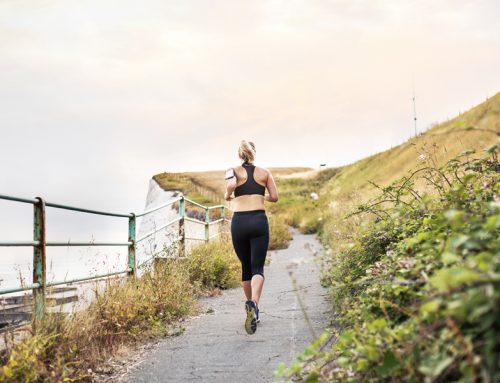

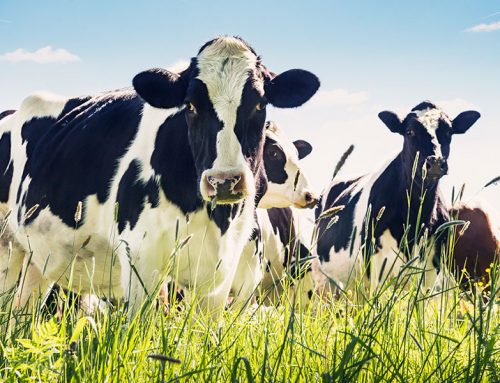
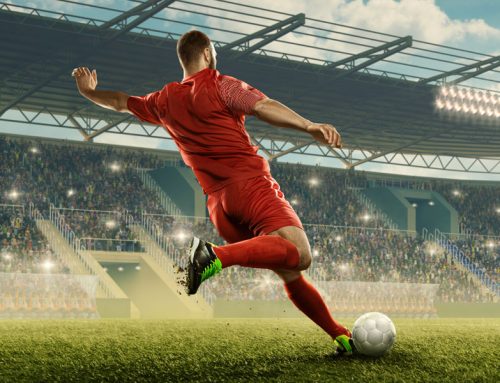
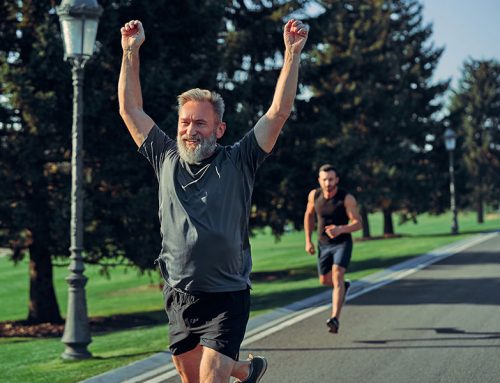
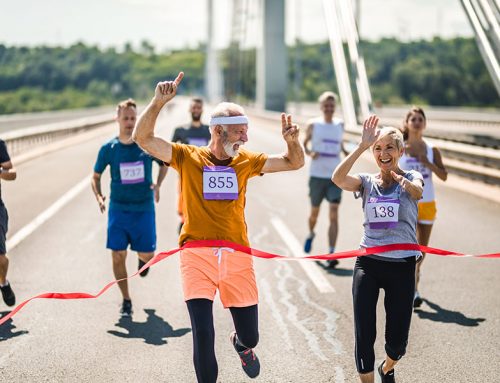
Leave A Comment